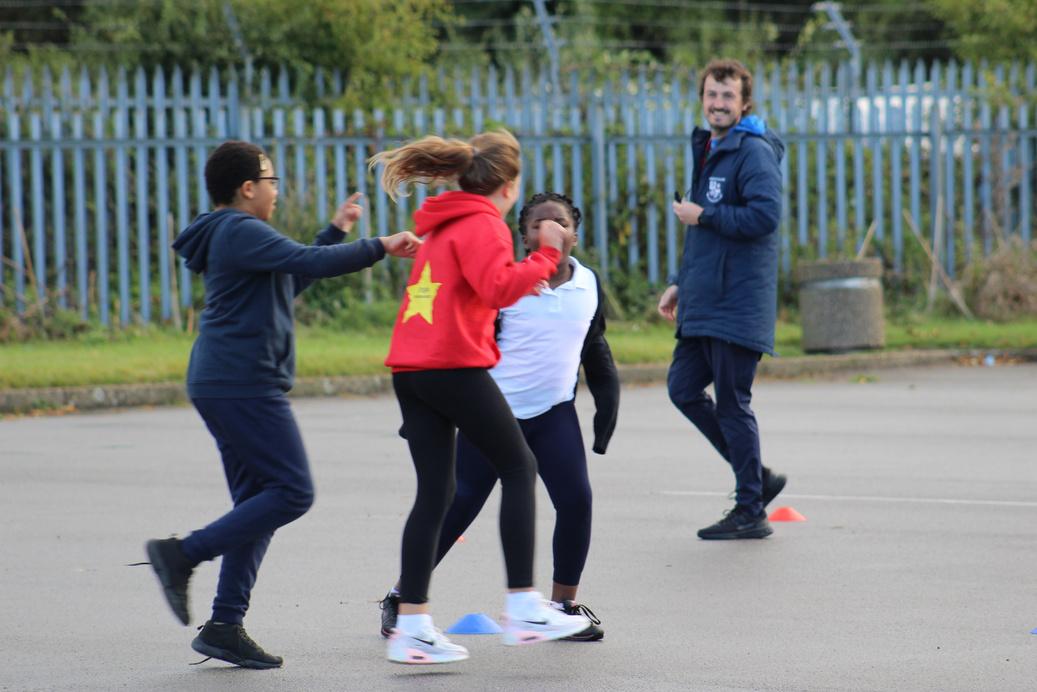
2 minute read
Teaching for Masteryt
Access Pattern
Making Connections
Advertisement
Representation & Structure
Mathematical Thinking
Chains of Reasoning
Making connections
Procedural
Conceptual
Making connections
Parental Linkst
Fluency
Number Facts
Table Facts
Making connections
At STR, all pupils from KS1 and KS2 have access to a TT Rockstar account which can be used at school and at home. As part of our homework policy, each learner is actively encouraged to participate every night for a minimum of 10 minutes Weekly certificates, postcards and parent updates of TTR leader boards and statistics are shared with parents to encourage parental involvement. Parent sessions are used in school to support pupils with their work at home Each half term, staff share with parents the KIRFs for that term through uploads on Google Classroom, this also includes ways to support their children at home.
Classroom Environmentt
Every classroom has a maths working wall which is updated daily. The current area of maths being studied is represented on the working wall to assist pupils in being successful within the lesson. This enables them to refer to previous learning and encourages independence. Key vocabulary is also displayed along with visual representations, reasoning prompts and annotations
Assessmentt
A main focus within our maths lessons is assessment Within a lesson teachers will constantly use assessment for learning to provide bespoke challenge or scaffold for pupils Cold tasks are completed at the beginning of a unit, as an assessment tool. At the end of a unit, a hot task is completed which highlights progression and areas which need further teaching. Termly assessments are completed, which are then used to inform pupils' current data points These are also used as way of identifying children who need further support, or those who need challenging
Lesson Sequence –What does Maths look like at St Richard’s?
EYFS:

In Foundation Stage 2 children follow the Mastery Number scheme which aims to strengthen the understanding of number and fluency with number facts among children. Our Foundation Stage focuses on the six areas of early mathematics: cardinality and counting, comparison, composition, patter, shape and space and measures. Pupils are give maths tasks based on exciting real-life experiences that allow learners to understand the value of maths in their lives In provision, maths tasks are presented for pupils to apply their mathematical skills, this can be pupil led, supported or an adult focus task.
In Key Stage 1 all children begin their maths lesson with a Mastering Number session:

Retrieval Practice
Maths lessons begin with a ‘5 a day’ This provides an opportunity for Retrieval Practice based on knowledge from previous concepts. This could be taken from the last lesson, last term or last year's learning There is also time to practice Key Instant recall Facts (KIRFS) which are the core concepts for each year group. These may be presented orally, visually or formally.
Reasoning Starters:
Maths lessons begin with a shared reasoning task which uses a real-life hook to engage the children From this the pupils will formulate ideas around ways to solve the task which will include teacher modelling. The aim of this is to increase mathematical talk, allowing learners to discuss different strategies, encouraging them to make links between different mathematical concepts. It is also an opportunity to apply their growing mathematical vocabulary to what they have learnt
Independent Work:
Lessons follow a ping-pong approach with teacher modelling and independent application. Tasks include opportunities for pupils to practise their fluency, reasoning and problem-solving skills
Golden Tickets: il h ll d th h ’ ld ti k t’ if th y gain a secure understanding of the lesson’s ers to demonstrate a deeper understanding of the ecure with their learning, we offer a St@r Golden





